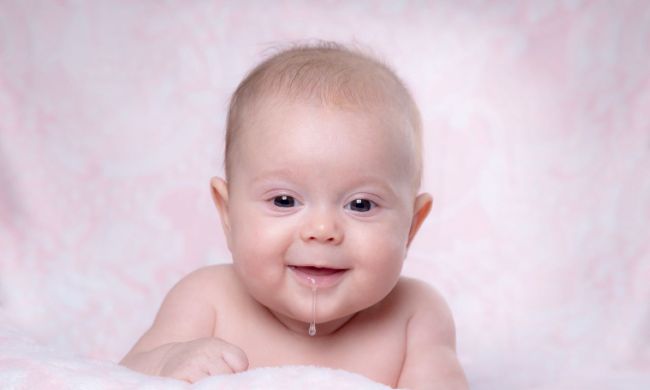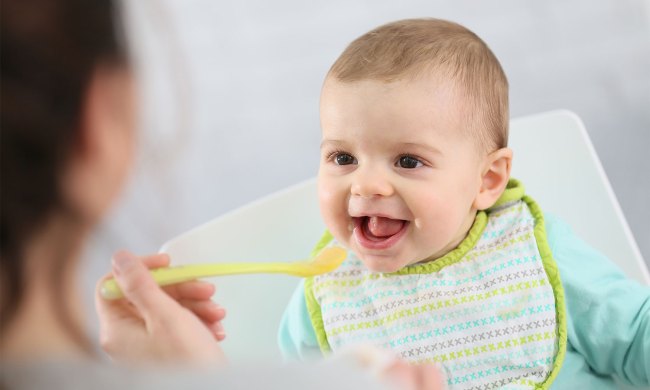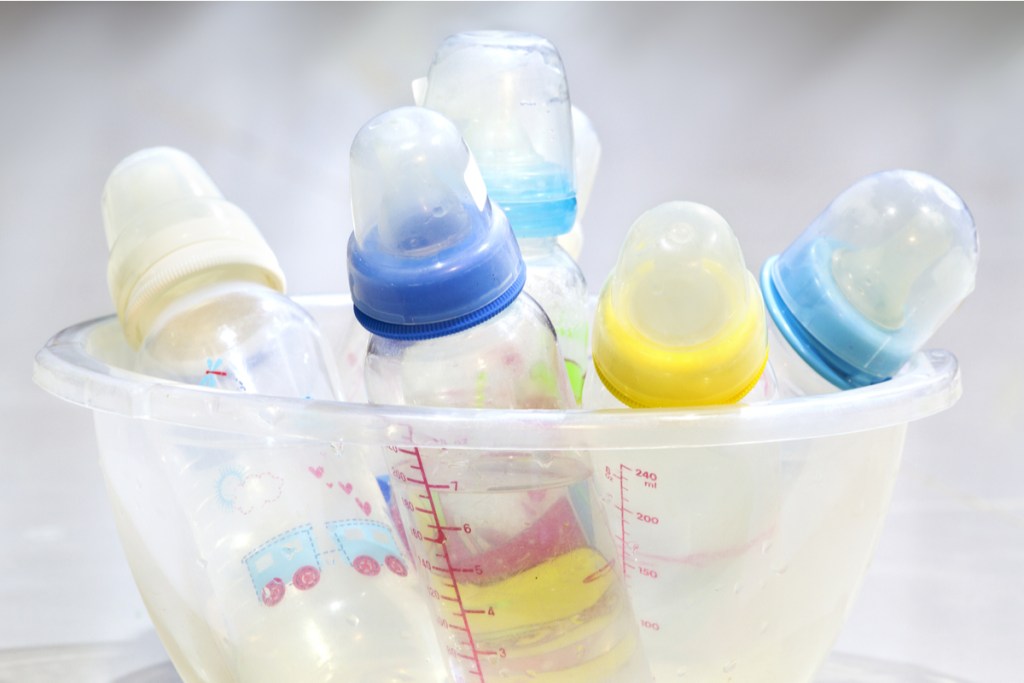
Having a baby can be overwhelming, especially for first-time parents. It means making endless decisions about day-to-day activities and how they can impact the baby’s safety. Even something as simple as choosing the type of bottle to use becomes an important decision. Glass vs. plastic baby bottles: Which is a healthier choice?
A baby’s bottle is a vital purchase, and it’s certainly worth exploring all the factors when it comes to glass or plastic baby bottles for health, convenience, and cost concerns. There are trade-offs to consider with each. So, here’s what parents need to know when it comes to glass vs. plastic baby bottles.
The scoop on plastic baby bottles
With all the concerns around chemicals in plastics, it’s natural for parents to wonder if anything from a plastic baby bottle might find its way into their baby’s milk.
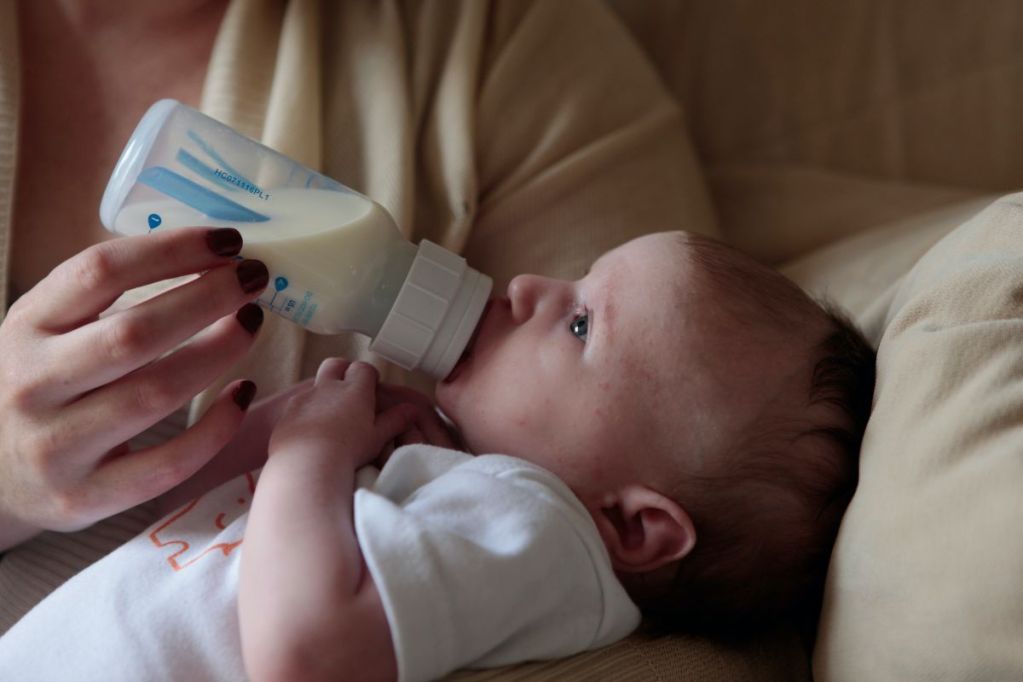
Today’s bottles aren’t the same as the old plastic ones
Thankfully, baby bottles are regulated by the federal government. The FDA prohibits bisphenol A or BPA in plastic baby bottles. BPA is an industrial chemical used in making many types of plastic. Some research indicates BPA is harmful to people, while other schools of thought point to different levels of exposure as the problem. Even with ongoing research and FDA regulation, it’s impossible to fully know the effects of every compound in various plastics, especially when it comes to a baby bottle.
Any plastic bottles manufactured since 2014 don’t contain BPA, and the FDA regulates plastic baby bottles to ensure their safety. “These days, parents don’t need to be concerned about the quality of the plastic that they’re using for baby bottles,” said pediatrician Dr. Janice Heard.
Dr. William Mudd, a Cleveland Clinic pediatrician, added, “Even a BPA-free plastic bottle has some risk, but you can take steps to limit risk as much as possible.” Mudd recommends not using the dishwasher or other high temperatures when cleaning or warming plastic baby bottles since compounds are released when exposed to extremely high temperatures.
Other safety measures are to store milk in a glass container and transfer it to a plastic bottle only when it’s time for feeding and avoid shaking the bottle since that could release microplastics into the milk.
A study published in October 2020 showed microplastics are released from plastic baby bottles over time. However, one of the study authors, Professor John Boland, stated, “There is no evidence of any adverse outcomes from exposure to these plastics,” but “if you’re super concerned about it, then you should use glass bottles.”
Possible downsides to plastic
Another concern with plastic bottles is that they might pick up flavors or smells over time since they absorb more than glass. Plastic could get small scratches and bacteria could collect in the dents. On the other hand, since they are much less likely to break, plastic bottles may last longer than glass bottles despite the possibility of scratches, absorption, and warping.
Why plastic ones are so popular
Plastic baby bottles are lightweight, unbreakable, and easy to find, making them a convenient and practical choice for many parents. A baby can hold a plastic bottle on their own as they get older. Busy parents feel secure taking plastic bottles out of the house for traveling without worrying about them shattering. Plastic bottles are also more affordable than glass bottles.
The deal with glass baby bottles
Glass baby bottles do have some pros and cons. Here they are.

The potential issues with glass
An obvious one is glass bottles could drop and break, injuring a baby, parent, or caregiver. Glass bottles are also heavy. Feeding a baby with a glass bottle may be uncomfortable because of the weight, and it also means babies won’t be able to give themselves a bottle. Babies won’t be able to support the weight of a glass bottle since those adorable hands and fingers have developing fine motor skills. This increases the chances of dropping and breaking a bottle. Bringing glass baby bottles in a diaper bag or on a plane is trickier for the same reason. There is an increased chance of shattering and being heavy.
Glass bottles have perks
Glass bottles are also less readily available and more expensive than plastic bottles. However, glass baby bottles are more environmentally friendly and are safe to clean in the dishwasher without any risk of warping or releasing any chemicals or microplastics.
Overall, glass baby bottles are easier to clean since they can be sanitized at even higher temperatures than plastics, and they are not as prone to scratches. If you are concerned about plastic baby bottles despite FDA regulations, glass bottles, despite the higher cost, may give you peace of mind.
Other factors that might sway your opinion
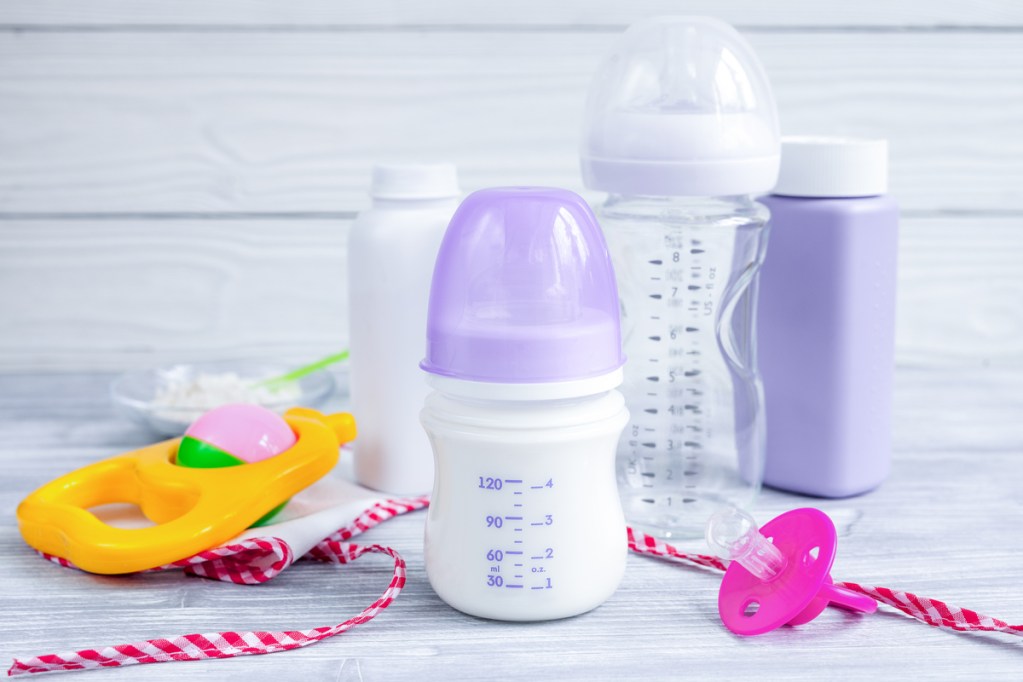
What about when your baby has colic? Is one type of bottle better for your child than another? Well, you’ll need to find a bottle with the proper ventilation system to reduce gas, which might be a glass or plastic bottle system.
If you’re breastfeeding, glass bottles might also be the winner for you. The milk won’t oxidize in a glass bottle like it would in a plastic one, keeping all of those nutrients there for your baby to get. Glass bottles are better at preventing spills and leaks.
You might end up with both
Don’t rule out having one of each, either. You might find glass works best for when you’re at home, and plastic is better for those errand days on the go. There’s nothing that says you can’t be team glass and plastic.
Consider all alternatives

The reality is you’re probably going to have to go through some trial and error before you decide which bottle is right for your baby. In addition to glass and plastic baby bottles, there are also silicone and stainless steel options. Silicone bottles tend to sit in the middle of plastic and glass when it comes to pricing and can be a nice option for a parent looking for an alternative to plastic without the heaviness of glass.
There are many stainless steel baby bottles on the market these days for those concerned about using plastics. They are thought to be more eco-friendly and last longer than plastic bottles. There are many options available for parents that aren’t limited to just plastic or glass baby bottles.
So, which bottle do you choose?
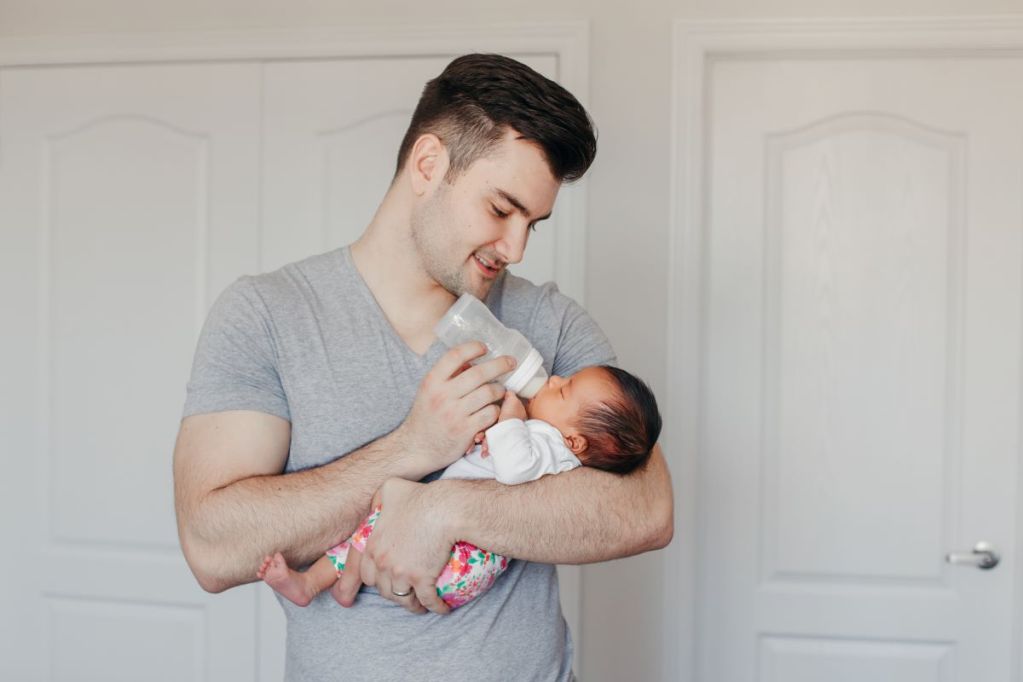
Clearly, glass and plastic baby bottles have both pros and cons. Glass bottles don’t have any chemical risks but are costlier, could break if dropped, and are harder for your baby to hold. Plastic baby bottles are cheaper, convenient, and lightweight enough for babies to hold. In the end, choosing which bottle is right for your family is all about balancing small risks with other factors.
“Parents should be aware of the potential risks of plastic, but there’s no reason to be overly anxious,” Dr. Mudd said. “There are always some risks in life. As parents, we just have to do our best to minimize them. The nutrition your child gets throughout childhood is likely much more important than what kind of bottle you use.”
In other words, try not to overthink the glass vs. plastic baby bottle decision. There isn’t any choice we make as parents that doesn’t involve some risk. Parents don’t need to be overly concerned with the small risks of using plastic baby bottles if the cost and convenience work best for their family. If you want to use glass because they are better for the environment and will last longer, then go ahead.
This one comes down to personal preference and you may find yourself changing your mind after using one type for a bit, anyway. Keep an open mind and know that as long as your babe is fed, whichever bottle you choose is the best option.

